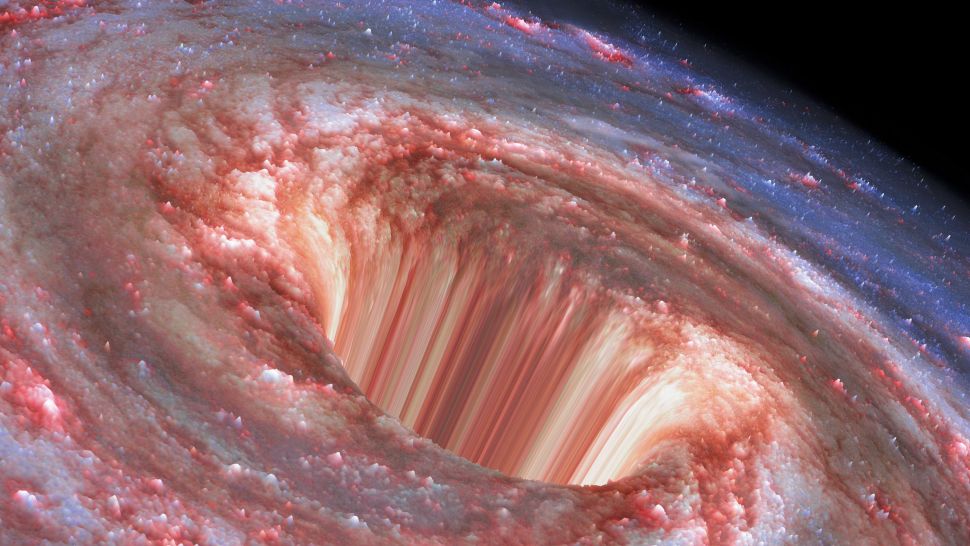MI weekly selection #394
MI weekly selection #394

Need a particle accelerator? How about a black hole?
Researchers have figured out a way it would be possible for black holes to act as particle accelerators. Previously, it was thought that only theoretical “extremal” black holes would be able to allow fast-moving particles to get near enough to the event horizon without falling in, but physicists say nonextremal black holes could also do the trick if enough particles rush in to create several collisions.
This beetle is tough enough to withstand car encounter
The diabolical ironclad beetle is tough enough to withstand being squashed by a car. Its resilience is due to having a strong exoskeleton coupled with a protective shell that allows for some give when under extreme stress.
Cultural adaptability of ancient humans to ecological changes
Environmental changes that began around 400,000 years ago may have forced humans living in East Africa to modify their lifestyles to survive. Researchers studying an area in what is now Kenya have found evidence of a drastic shift in the culture of ancient humans at about that time that were likely driven by frequent variations in water and food sources as a result of ecological transition.
Do high-sugar diets up risk for behavioral disorders?
People with a genetic predisposition to behavioral disorders such as bipolar disorder, attention deficit/hyperactivity disorder and aggressive behaviors may have a greater risk of developing them if their diets are high in sugar. According to the researchers, fructose’s ability to lower energy in cells may be linked to a foraging response that could heighten risk-taking and aggressiveness.
Rapid transition to warm-bloodedness documented
The creatures that survived a mass extinction event about 252 million years ago developed warm-bloodedness afterward. Researchers say birds, mammals and tetrapods all adopted an erect posture quickly after the Permian extinction, a change that allowed them to run longer distances, and to run faster.